How to clean Venetian blinds – the best and easiest way to make them look good as new
Don't resign yourself to grubby Venetian blinds - here's the kit and know-how you need to banish dirt and grime

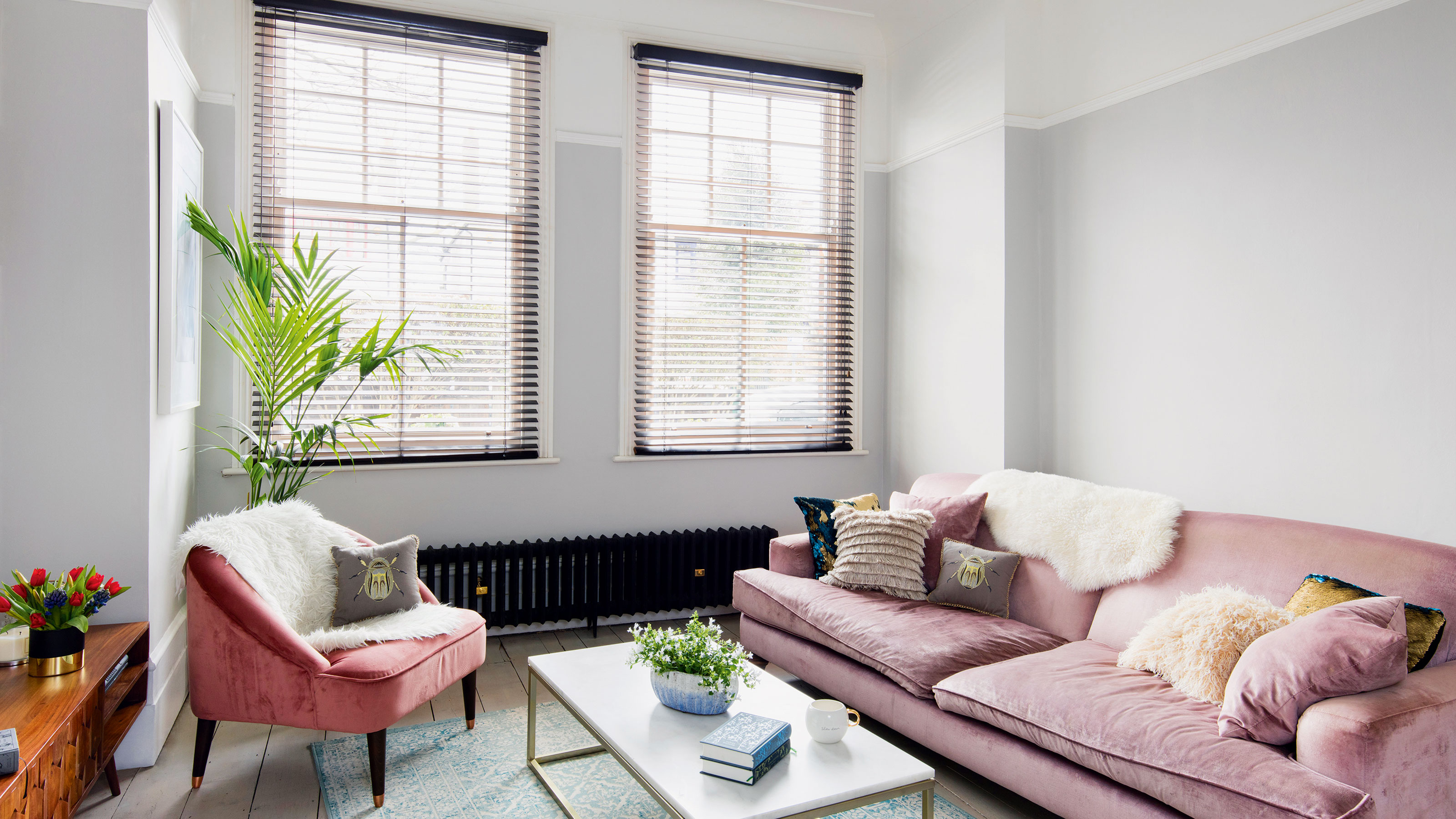
Sign up to our newsletter for style inspiration, real homes, project and garden advice and shopping know-how
You are now subscribed
Your newsletter sign-up was successful
Sponge, cloth or duster? To remove or not to remove? These are a few things you should consider before you tackle this fiddly - but necessary - job. But we've created an easy-to-follow guide for anyone wondering how to clean Venetian blinds.
Although there are so many window blind ideas out there, Venetian blinds have always been popular. The horizontal slats of Venetian blinds make them extremely versatile, allowing homeowners to adjust the slats to control the light in a room - whether that be in your kitchen or your living room. However, these slats also accumulate dust and dirt more than other types of blinds.
Because of this, it’s important to keep on top of cleaning Venetian blinds and knowing how to, similarly to learning how to clean roller blinds if you own them. And we’ve spoken to experts to get the low-down on how exactly to do that.
How to clean Venetian blinds
‘Venetian blinds offer a timeless style to your home, as well as improve the privacy and light control in your rooms. As we spend a lot of our time and effort choosing the right colours and materials for our window dressings, many of us forget to maintain a regular cleaning schedule and are often unsure of how we should clean them appropriately,’ explains Colette Toman, Interior Stylist, from Make My Blinds.
That’s why we’ve put together the only step-by-step you’ll ever need to successfully clean Venetian blinds.
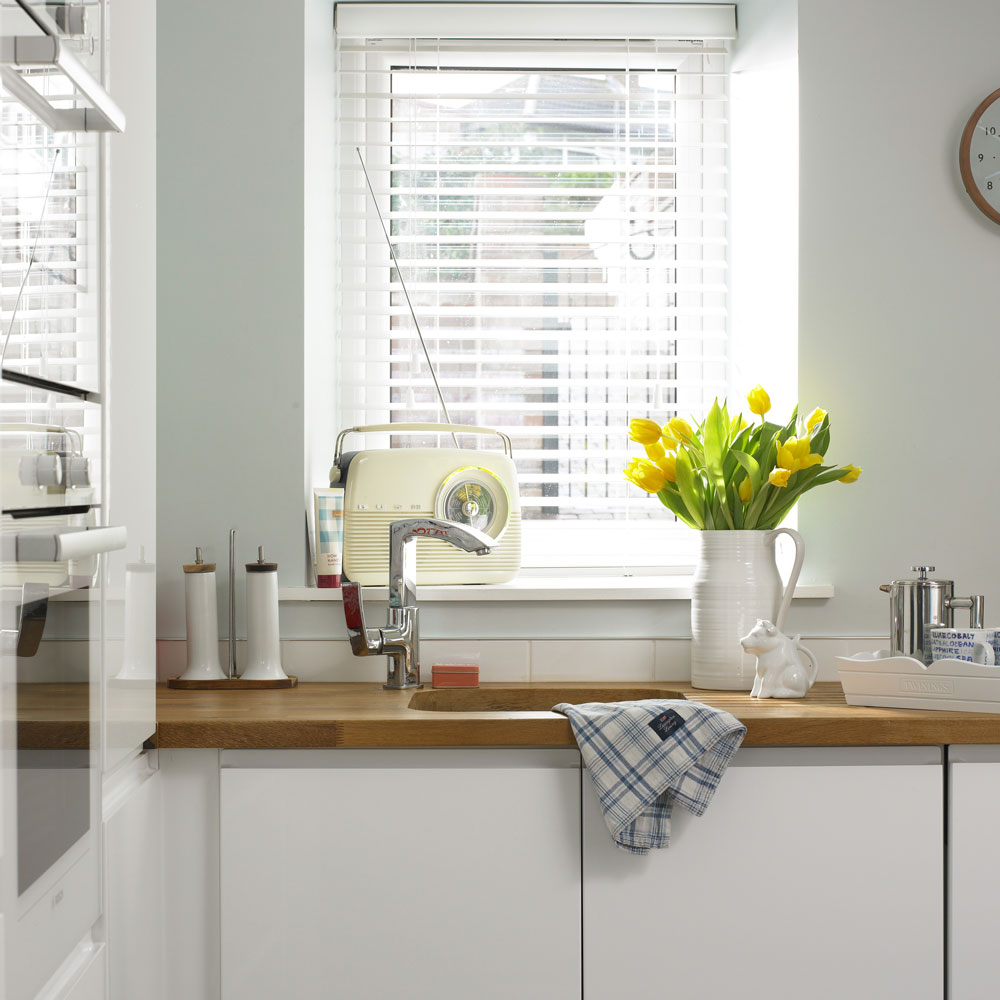
What you'll need
- Duster - like this Addis Comfigrip Flexible Duster from Dunelm
- Microfibre cloth - like this MR.SIGA Microfiber Cleaning Cloth, Pack of 12 from Amazon
- Washing up liquid
- Warm water
Step-by-step
1. Do some research
Before you start whipping out the cleaning products and trying to clean your Venetian blinds, you should first check the cleaning requirements with the manufacturer of your blinds.
It’s very easy to damage your blinds using the wrong method or product, which is why you should always do a spot test on a hidden section of the blind if you’re ever in doubt.
Sign up to our newsletter for style inspiration, real homes, project and garden advice and shopping know-how
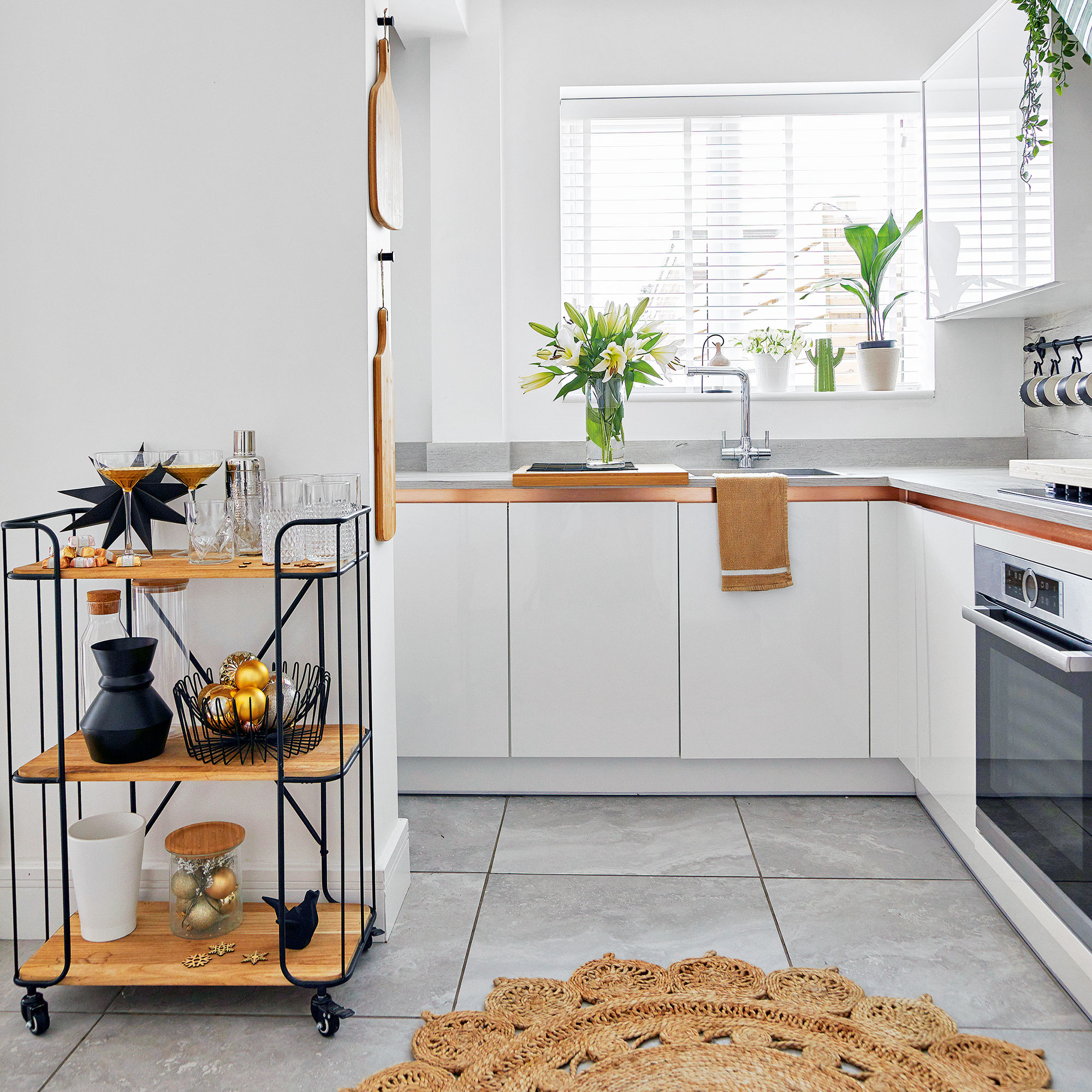
2. Dust the blinds
Just as you dust your skirting boards or your bookshelves, you also need to dust your blinds. And while you don’t need any fancy tools or products to do this, you could use this Venetian Blind Cleaner from Dunelm if you want to make this process even easier.
However, Daniel Hatfield, Brand Manager at leading blinds company Luxaflex, says, ‘Close the slats and remove dust with a feather duster or a soft cloth. You could also use a vacuum cleaner attachment set to the lowest level.’
But if you are going to use one of the best vacuum cleaners for this job, it’s important to think about the integrity of your blinds. To avoid scratching or damaging them in any way, use a lower suction or speed setting and use an upholstery attachment.
In some cases, this might be enough to clean your blinds free of dust and debris - especially if you keep on top of this dusting.
Helen O’Connor, Product Manager at 247 Blinds, explains, ‘By tackling dust and dirt fortnightly, or even once a week, you’ll prevent any build-up from forming, helping to maintain the quality and colour of the blinds for longer. For many types of blinds, including Venetian blinds or vertical blinds, making dusting a routine part of your cleaning will be sufficient without the need for a deep clean.’
However, if your Venetian blinds are particularly dirty, you should move on to the next step.
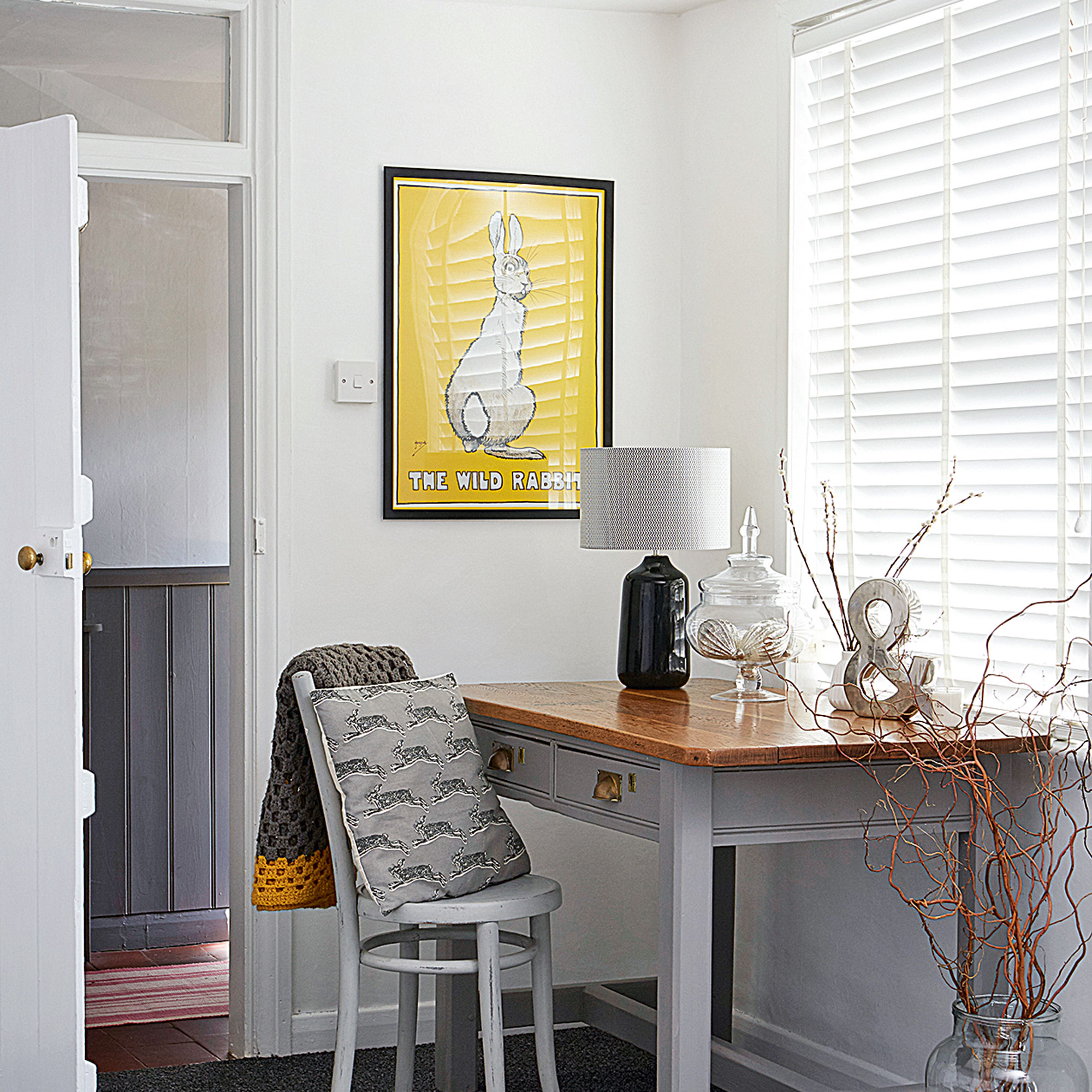
3. Wipe with a damp cloth
If you have Venetian blinds in your kitchen and have noticed grease stains or food debris, dusting alone probably won’t clean them properly. So, you’ll need to give them a deeper clean.
Helen says, ‘For Venetian blinds, you should use a damp cloth and warm washing up liquid to wipe along each slat, removing any settled dust or debris build-up.’
This step does come with a warning from Helen, though. ‘If you have wooden Venetians, however, you will want to wipe them down with a dryer sheet after the damp cloth to reduce the amount of dust settling on the slats afterwards.’
4. Repeat every week
Whether you’re looking to clean a kitchen in 15 minutes or you want to avoid a dirty and dusty living room, it’s important to keep on top of cleaning Venetian blinds. Ultimately, this will make the process much easier.
‘Light, regular cleaning is ideal for Venetian blinds as the horizontal slats can accumulate dust and dirt more easily than other types,’ says Colette. ‘They should be dusted or vacuumed every week or so, and the amount of dusting may vary depending on where you live.’
Of course, even if they don’t look visibly dirty or dusty, it’s still a good idea to get into this routine.
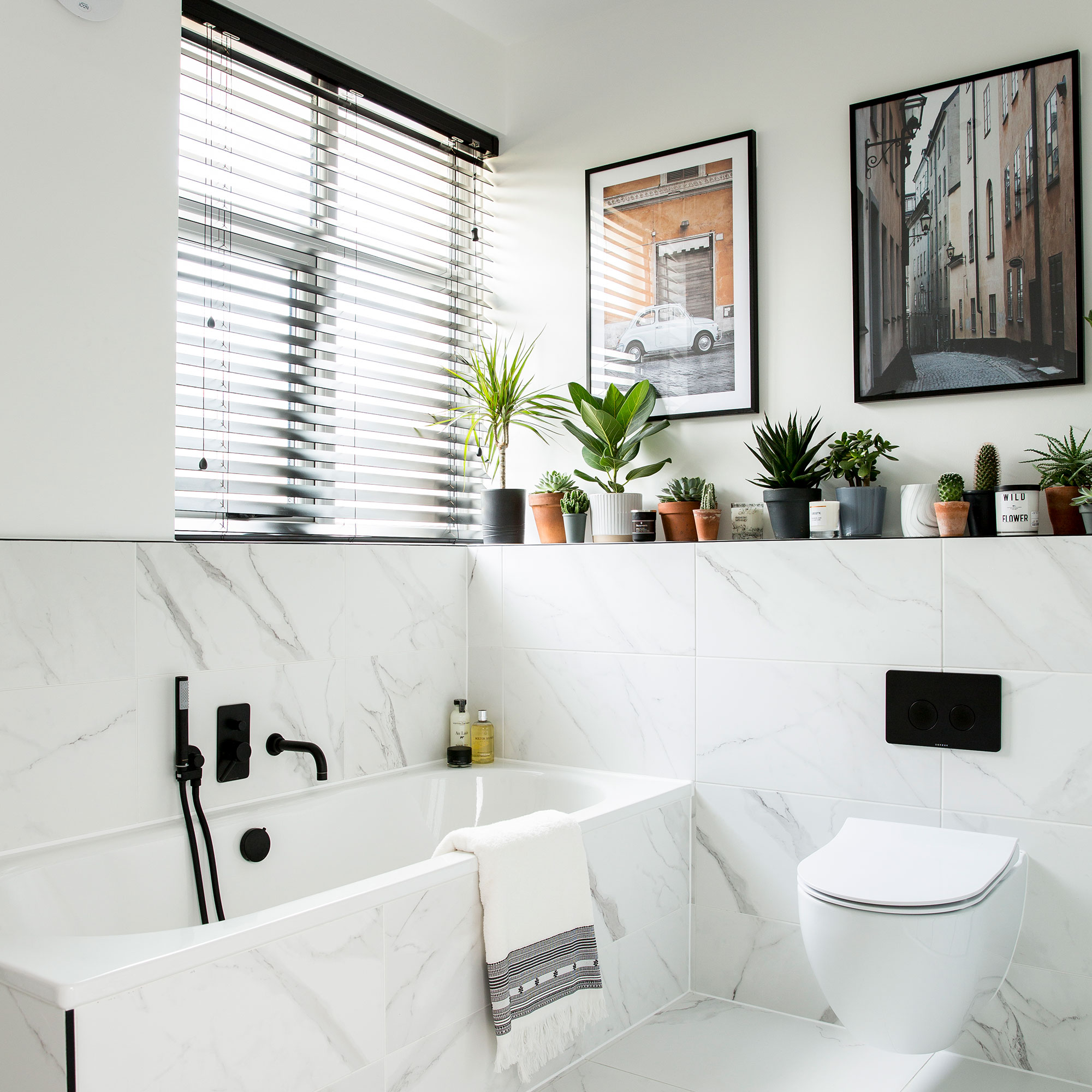
FAQs
What is the best way to clean dirty Venetian blinds?
Start by dusting your Venetian blinds. You can do this with a duster or with a vacuum cleaner, but it’s important to use an upholstery attachment on the vacuum cleaner if you choose this method.
To clean any grease or grime off your dirty Venetian blinds, you can then use a damp cloth and a mixture of warm water and washing-up liquid. This will break down the grime so you can then wipe it off.
What is the best way to clean blinds without taking them down?
You don’t need to take your blinds down to dust them - especially when you have Venetian blinds. The horizontal slats make them very easy to clean when they’re in situ. You just need to make sure that you’re able to get into every nook and cranny with your duster.
If needs be, you can then go over with a damp cloth to get off any remaining dirt or grime.
Are Venetian blinds difficult to clean?
No! Thankfully, Venetian blinds are extremely easy to clean, thanks to the horizontal slats.
You can even find hacks to clean these blinds if you’re looking to work smarter and not harder. Helen says, ‘Slipping a sock over your hand to wipe down the slats is a great quick but precise method.’
Happy cleaning!
Jennifer is the Deputy Editor (Digital) for Homes & Gardens online. Prior to her current position, she completed various short courses a KLC Design School, and wrote across sister brands Ideal Home, LivingEtc, 25 Beautiful Homes, Country Homes & Interiors, and Style at Home.